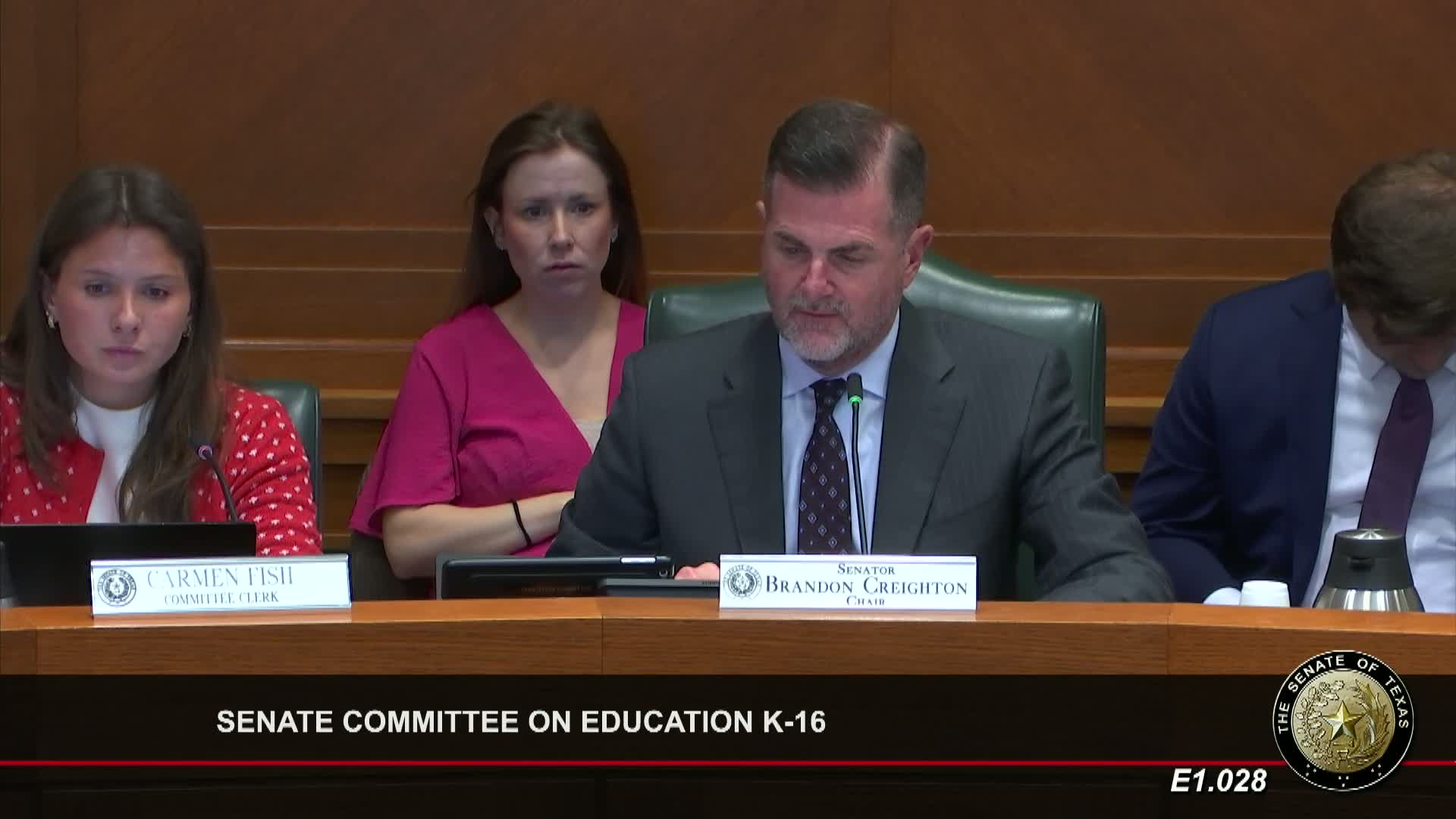Bill would require superintendents to report alleged staff-student misconduct to law enforcement
Get AI-powered insights, summaries, and transcripts
Subscribe
Summary
Sen. Sparks introduced SB 12 24 to require superintendents to report alleged romantic or abusive conduct between staff and students to municipal or county law enforcement within 48 hours; the measure includes penalties for failure to report. Dozens of survivors, advocates and organizations testified in support; committee left the bill pending.
Senator Robert Sparks presented Senate Bill 12 24 to the Senate Committee on Education, proposing a statutory requirement that a superintendent who learns of alleged romantic, sexual or abusive conduct between a staff member and a student must promptly notify local law enforcement.
Sparks told the committee the bill mirrors existing reporting duties in the education code that apply to other entities and would make a superintendent’s failure to provide notice to outside law enforcement within 48 hours a state jail felony; the State Board for Educator Certification also could impose administrative penalties from $500 to $10,000 for failing to report.
Witnesses and survivors gave repeated, often personal testimony urging the committee to pass the measure. Kristen Bentley, state Republican executive committee woman for Senate District 1, said the bill is bipartisan and aimed at closing “loopholes” that have allowed misconduct to be handled solely within school systems. “Our schools are facing a crisis with educator misconduct and inadequate reporting practices that allow predators to evade justice,” Bentley told the committee.
Survivors described experiences they said showed the limits of internal district investigations. Callie McDonald, testifying on her own behalf, recounted being massaged by a coach at 14 and said employees and administrators often “turn their heads” because they do not know how to respond. Faith Colson, who said she was groomed and abused by a teacher in high school, urged that outside law enforcement or the Department of Family and Protective Services should receive reports and that the duty to report be clarified so the first person with knowledge must notify outside authorities before any internal investigation proceeds.
Advocacy groups speaking in favor included Citizens Defending Freedom, True Texas Project, Parent Advocates of Texas Education 9 11, Texas Family Project and others. Several witnesses urged the committee to expand coverage to private and charter schools and to consider independent oversight to ensure reports reach outside authorities rather than staying inside district-controlled investigative processes.
Committee members repeatedly emphasized the long-running, bipartisan effort to tighten reporting and to close channels that previously allowed incidents to be “passed” between districts, contractors or private entities. Senator Bettencourt said he has a 60-page committee substitute to shore up known gaps; Senator West and other members pressed staff to consider language that would include private and charter schools.
Public testimony closed after numerous witnesses; no committee vote was taken and SB 12 24 was left pending for further drafting and coordination with other committee work on educator conduct reporting.
